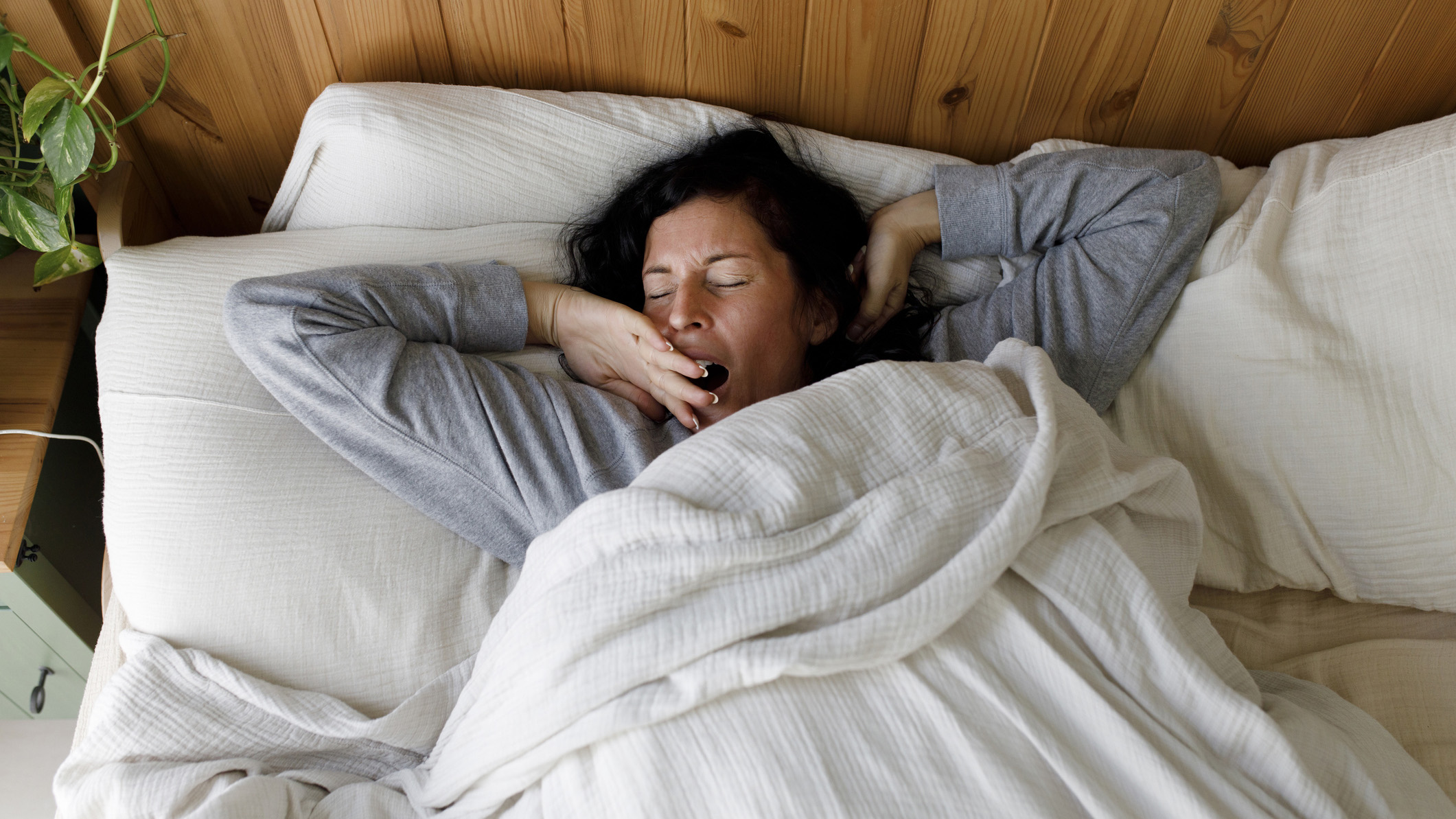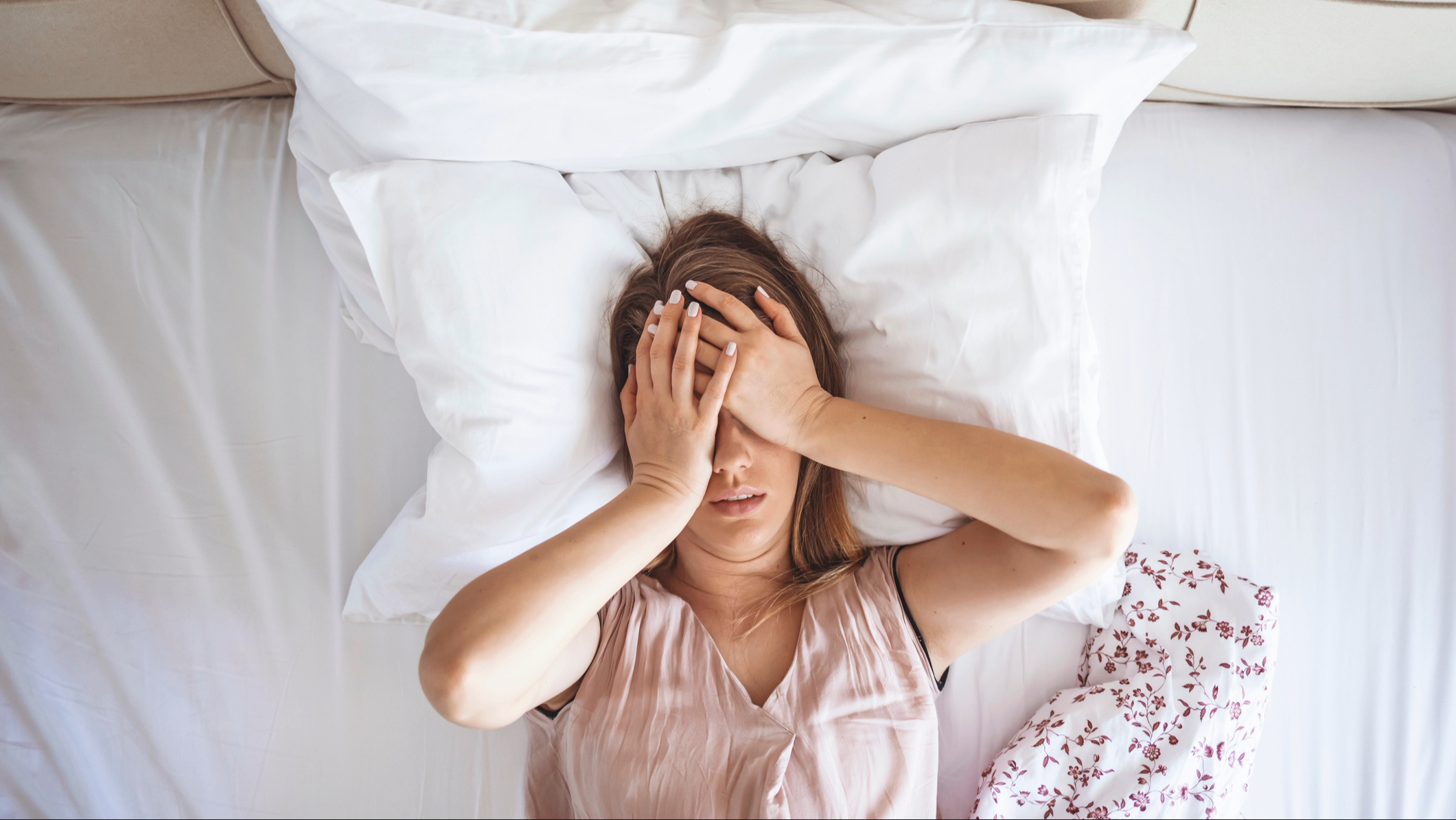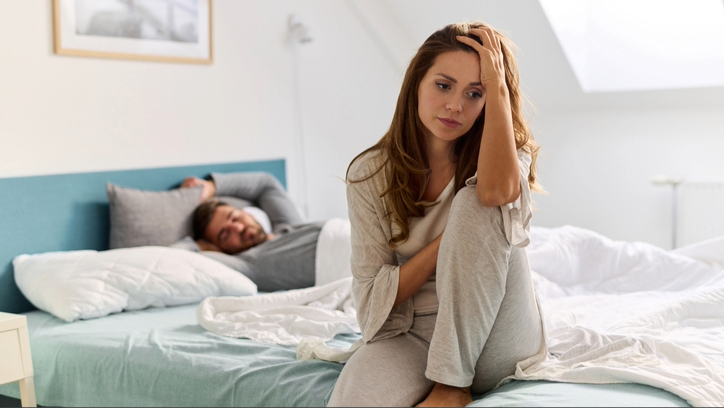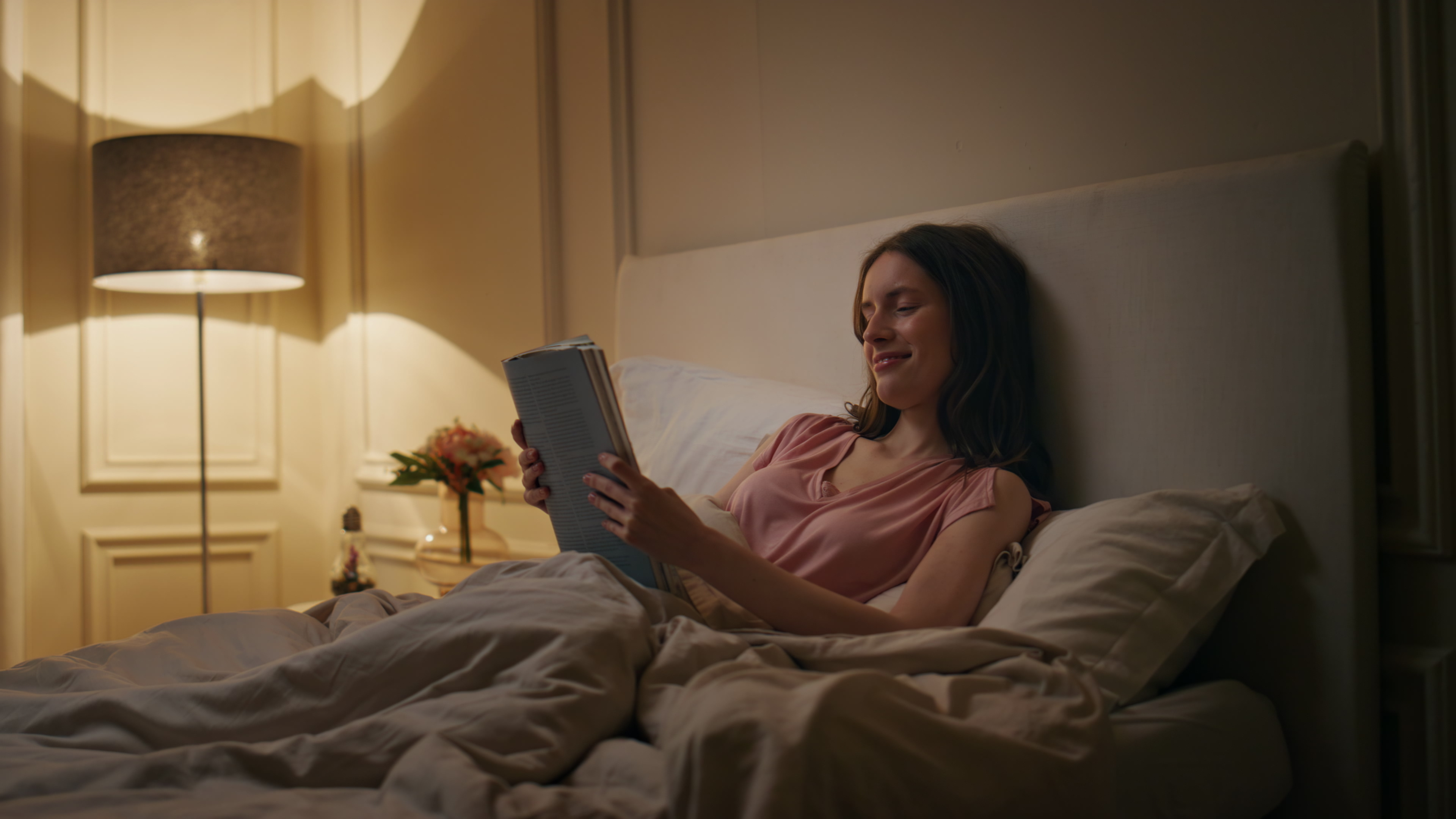
Ageing is inevitable, so how does it affect our ability to get a full and restorative night’s sleep? According to the results of a new AI-based study into how sleeping patterns change as we age, both our deep sleep and REM sleep decrease. But it’s not all bad news. According to the research, after a dip in the length of time we sleep at night in middle age, the average minutes of sleep per night increases again in the later stages of life.
The results of the study, a collaboration between Fullpower Technologies, Stanford University and University of California San Francisco (UCSF), were presented at the European Sleep Conference in Spain in September 2024. Using data leveraged from the Sleeptracker AI platform, researchers were able to analyze seven million nights of sleep recorded by the 117,000 participants.
Key findings
- Middle aged-individuals (30-55 year olds) sleep less than younger (20-25 year olds) and older (80-85 year olds) adults.
- Deep sleep and REM phase sleep decreases as we get older.
- Sleep apnea patients experience less deep sleep across all age groups.
The findings of the study have opened up plenty of possibilities for further research into sleep and ageing. As well providing insights into how deep sleep and REM sleep are affected by age and the average time we sleep per night over our lifetime, researchers made inroads into the the impact of sleep disorders on those all important non-waking hours. Participants with sleep apnea experienced lower levels of deep sleep across all age groups than their counterparts without sleep disorders.
REM sleep and overall sleep duration
There are four stages of sleep within a cycle: three non-REM (N1 and N2 being light sleep; N3 being deep sleep) and one REM stage. The rapid eye movement (REM) phase of the sleep cycle is associated with dreaming and increased brain activity, usually taking up to 25% of total sleep duration.
However, the new study showed that, over our lifetime, REM sleep decreases significantly. Researchers assessed the changes in REM sleep, deep sleep and average sleep time across three different age groups: 20-25 year olds, 30-55 year olds and 80-85 year-olds.

20-25 year olds experienced 15.9% deep sleep and 26% REM sleep; 30-55 year olds recorded 14.3% of deep sleep and 25.7% REM sleep and 80-85 year-olds had 13.1% and 22.9% of deep sleep and REM sleep respectively.
Though men experienced less REM sleep than women between the ages of 20-54, the study showed that between 55 and 80, women averaged less. By the time both men and women hit 80-84, women once again recorded higher average REM sleep per night.
Interestingly, the study showed that ageing actually has some benefits when it comes to sleep. The younger age group (20-25 year olds) averaged 430 minutes sleep each night, compared to the 30-55 year old group's average night's sleep, which clocked in at just 413 minutes. However, the 80-84 year old group saw their average sleep time bounce back by seven minutes a night, with 420 minutes pf sleep.
“This study provides crucial baseline data for understanding sleep patterns across the lifespan and the impact of sleep disorders,” says Philippe Kahn, Founder and CEO of Fullpower AI.
Why do our sleep needs change with age?
The new research has opened up opportunities for further research into sleep patterns throughout our lifetime and the impact of sleep disorders as we age, but what might be behind experiencing lower levels of REM sleep as we get older?
“As we get older, our bodies produce less melatonin, which can affect the amount of time we spend in REM sleep. This natural change in sleep patterns, along with factors like more frequent awakenings, leads to a reduction in REM as we age,” says Dr. Chelsea Perry of Sleep Solutions, and a member of the American Academy of Dental Sleep Medicine.
Melatonin is a hormone that our brain produces which regulates our sleep-wake cycle. It typically rises during the night in response to darkness, and promotes sleep. “With age, our sleep cycles often shift and shorten. Older adults may also experience lighter, more fragmented sleep, making it feel like they need less,” adds Dr. Perry.

How much sleep do we actually need?
The National Sleep Foundation suggests adults under 64 need between seven and nine hours sleep, with that number dipping to between six to eight hours a night for those 65 and older. But does that really apply to everyone?
As well as age, lifestyle and individual health can influence the amount of sleep we need in a day. Plus, the quality of the sleep we're getting plays a significant role in determining the amount we require.
“How many hours of sleep you need each night can simply be a result of genetics, but this is quite rare. The quality of your sleep is a more likely factor in how well individuals cope. Sleep is more than just downtime; those who enter deep, restorative sleep cycles will feel more rested in a shorter amount of time,” explains Dr. Hana Patel, NHS Doctor and resident expert at Time4Sleep.
An exception to this is when we’re feeling unwell. “When we’re sick, the immune system works overtime, and sleep helps support that process. More sleep allows the body to fight off infections, repair cells, and recover more efficiently, which is why it feels so essential during illness,” says Dr. Perry.
What happens if we don’t get enough sleep?
We all know that sleep is the key to functioning well on a day-to-day basis, but what exactly happens when we don’t get enough of it?
“Consistently being sleep deprived will affect both your physical and mental health. This is often very distressing and can lead to depression or can make it difficult to concentrate or remember what you had planned. Additionally, if you don’t have enough sleep you have less immunity against illness which may result in you developing coughs, colds and other health problems,” says Dr. Patel.
Research has shown that a lack of sleep can also lead to increase in cortisol levels, which in turn increase our blood sugar levels and cause high blood pressure. The resulting cravings for sweet, fatty foods can lead to weight gain and associated health problems.
Studies show that prolonged cases of sleep deprivation can also lead to serious issues like heart disease, high blood pressure, diabetes or stroke.
How to sleep better at any age – 3 top tips
Despite the multiple factors that can influence the duration and patterns of our sleep, we still need plenty of it to function properly in our daily lives.
As the new study shows, ageing changes the way we sleep, but there's still plenty that can be done, whatever your age, to help ensure the hours of sleep you are having are good quality.
Following good sleep hygiene will help you get the most out of your sleep. Here are a few tips for doing just that:
1. Wake up at the same time every day
Sticking to a set time for waking up and going to sleep will help programme your body clock and reinforce a healthy circadian rhythm.

2. Optimise your bedroom for sleep
As mentioned above, melatonin (which promotes sleep) is produced in response to darkness. So, keeping your bedroom cool, dark and quiet sets the right mood. Think of it that your room is telling your body that it’s time to rest. Investing in the best mattress for your sleeping style and needs will also positively impact your sleep quality.
3. Create a calming bedtime routine
Encourage your body and mind to wind down before bed. Easy ways to make your bedroom a haven of peace include removing everything you associate with wakefulness and activity. That means no, or low, tech an hour before bed, practising breathing exercises or guided sleep meditations, and even giving yourself some set "worry time" away from your bedroom at a different time of day.







